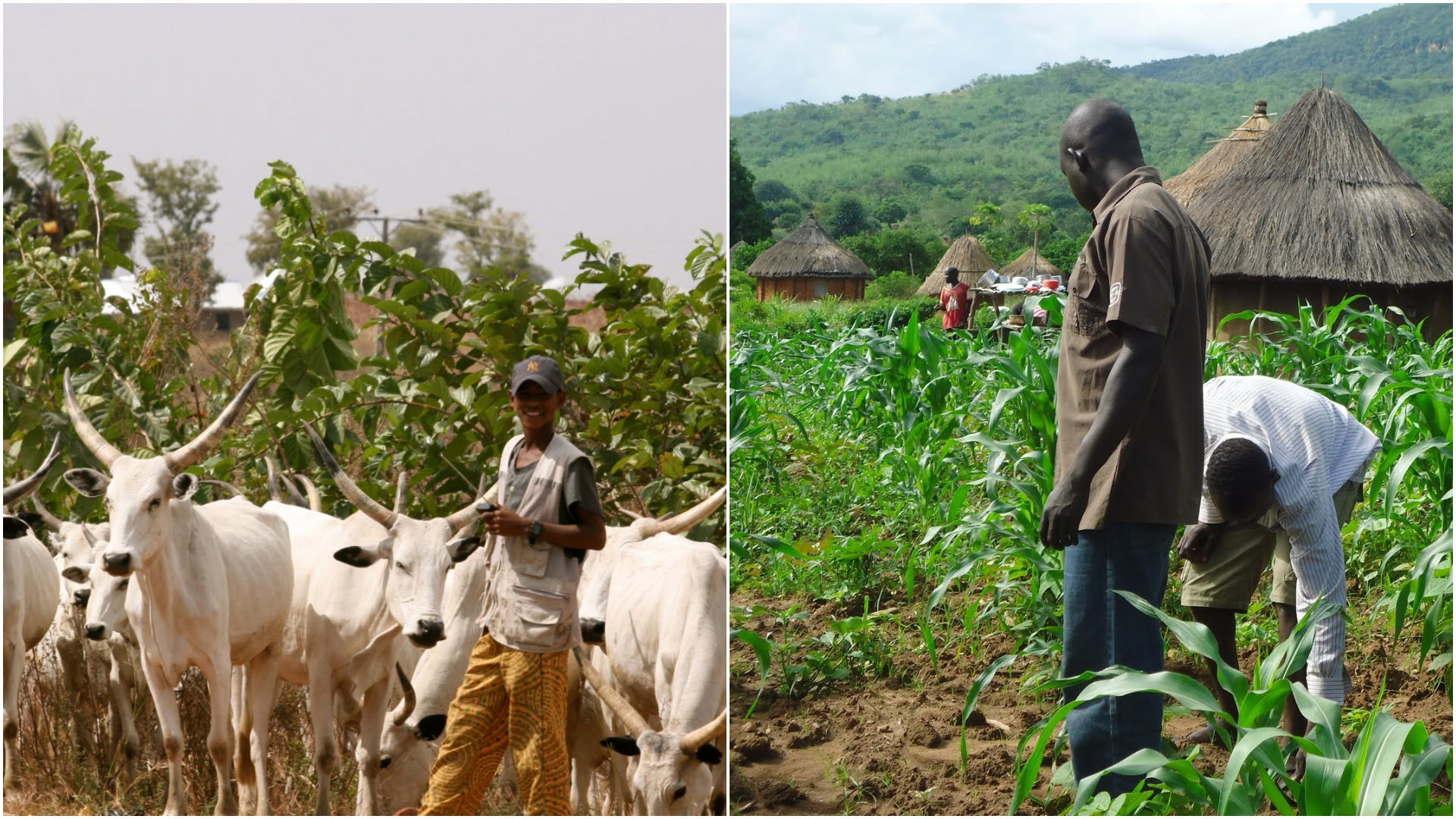A research report by
Plangshak Suchi, Lead researcher, and
Salek Yaks Musa, Associate researcher
Review by Jibrin Ibrahim, Senior Fellow, Centre for Democracy and Development
Introduction
I find the title of this project rather surprising. Can there be a root cause for a crisis that has developed and transformed over hundreds of years and within the life spans of at least three jurisdictions – precolonial, colonial and post-colonial? Such deep and complex processes, it must be assumed, have multiple causes that cannot be reduced to a main one except if the plan is to trap the authors. But then, maybe that was the plan. Secondly, the data for the study is based on key informant interviews of community stakeholders in a period within 2020, as perceptions of the informants are bound to differ significantly, the research topic itself should have been thought through more carefully. Nonetheless, I think the authors put a lot of efforts to review the literature and adopt a method that would lead them to the multiple perceptions that exist on the matter and they should be assessed from that perspective.
The authors draw our attention to the basic historical and sociological reality of the farmers-herders crisis. That there is a tradition of pastoralism in the area of study that goes back a long time and for much of that history, the relations between farmers and herders have been symbiotic and based on exchange of grazing land for manure with only occasional violence. Over the past few decades however, the relationship has become very conflictual and violent. They point out that since 2001, about 60,000 people have been killed in the conflicts, surpassing the death toll from the Boko Haram conflict in a neighbouring zone of the country.
The politics of the farmers-herders crisis
The politics of this research is deep as there are significant narratives of prejudice that underpin the theme. From page one, the authors set the scene of the herders being Fulani from the semi-arid Sahel in Futa Jalon. So, they are the other, non-indigenes from another country coming with their troubles as it were. Me thinks they are simply typical West Africans, who like the Tiv who migrated from Southern Africa have also migrated from multiple locations. The Futa Jalon appellation suggests that they are like other violent extremists from the Sahel. No, my friends, Futa Jalon is not in the Sahel, it is watershed grassland plateau similar to the Jos Plateau that produces many of the rivers in West Africa including the River Niger. In setting the political scene for the analysis, the authors draw attention to the narrative around President Muhammadu Buhari, who is of course of Fulani origin and whose government has promoted the implementation and institutionalisation of the:
“Ruga grazing system across the federation. However, the attempts using nomenclatures such as grazing reserves, ranching reserves, cattle colony, etc. has generated heated debate, controversy, and public disapproval as an attempt to forcefully takeover and give their land to the Fulani herders”.
The stage is set. It is a positional issue not one of social scientific research and we are all dragged to take our position – pro or anti Fulani. This is because, as the authors claim quoting sources:
“There appears to be a lack of political will by the government to contain the spate of violence and rebuild the lost trust. In part, some have argued that state forces are often slow to respond to call for distress whenever a community is facing an attack, an act that has encouraged further bloodshed (for example, see Musa, 2018). Numerous instances of such security failings are replete in the literature. In the 2004 inter-communal violence in Yelwa-Shendam of Plateau State, state forces were widely accused of negligence, complicity and failing to respond to distress calls in a violence that resulted to the death of about 700 persons (Human Rights Watch, 2005: 47). “
President Buhari maybe guilty as charged for allowing the Fulani engage in atrocities against people in North Central Nigeria. How then do we explain the fact that he is allowing the same atrocities run riot in his own Katsina State and surrounding Hausa and Muslim states where the Fulani are very much part of the ruling establishment? It might just be the case for example of the incompetence and cluelessness of his government.
The researchers also argue that the Fulani herders, according to the securitization theory constitute a compelling threat given the fact that they use guns and their conflict with farmers often turn out fatal, causing harm to individuals and ethnic communities in southern and central Nigeria. This has led to the Fulanisation discourse’s tendency to link pastoralism with Islamisation and terrorism in a discursive chain to produce a compelling “regime of truth” about insecurity. The idea here is to emphasise the linkages – Fulani, Pastoralism and Islam. The linkage produces the conspiracy theory that leads to the objective of Jihad, closing the circle on the Sahel and violent extremism. This is ideology and not social science so I will leave it at that level.
Methodology
Data is derived from Key informant interviews based on a total of 12 participants who were recruited from each community/local government area making a total of 24 participants in each of the three states studied – Benue, Plateau and Nasarawa. The researchers point out that due to difficulty in reaching a representative of herders in Benue State, the Chairman of the Miyetti Allah Cattle Breeders Association (MACBAN) in Nasarawa State and the Nasarawa State Fulani Ardo were added to the participants to fill the gap in representation of the Fulani herders in Benue State. Overall, a total of 72 participants were covered by the entire study. How representative is this sample. My view is that it is not a scientific sample because it works from the answer to the question. The general narrative is that there are two groups fighting – Fulani and indigenes. The composition of the sample is as follows:
1) Traditional rulers 1
2) Local govt officials 1
3) Farmers association 1
4) Herders association 1
5) Community 3
6) Security 1
7) Vigilante 1
8) Civil society 1
9) Religious leaders 2
10) Total 12
Out of the 12, one is from Federal Government, 2 from Fulani/Islamic representatives and 9 from the indigenous community. Given the political divide referred to above, the answer is clear before the interviews are conducted. The major findings therefore are about land grabbing by Fulani for the purpose of alienating the heritage of indigenes within a context of a wider jihadist plan that has been initiated with the on-going mass killings and atrocities in the zone. Research is significant if it can be replicated with the same results. A more balanced sample frame would produce a different result. What then is the value of this research? There is a wider question whether interview of stakeholders is the best way to conduct such research on which people are so deeply divided along bipartisan political and identity lines.
The authors however become rather generous in summarising their findings in a more nuanced manner referring to what they call:
“The overwhelming evidence suggesting that the root cause of the farmers-herders crisis in North Central Nigeria is located in the social structure of the Nigerian society and the inherent contradictions within the Nigerian state. Issues relating to blocking of cattle routes and encroachment on grazing lands by crop farmers; rampant destruction of food crops by Fulani herders; cattle rustling by bandits; and violent attacks on farming communities.”
The defective social structure, they argue, has its roots in the colonial legacy of injustice which elevated the Fulani politically over and above other ethnic minorities in the North Central region thereby planting the seed of discord, greed, competition, dominance, aggressiveness, ethnicity, regionalism, etc between farming communities and the Fulani herders.
The conclusion is:
“In the light of the findings of this study, it is obvious that the root cause of the farmers-herders crisis in North Central Nigeria is deeply-seated within the social structure of the Nigerian society and the character of the Nigerian state. In other words, the crisis is rooted in the historical legacies of injustice against the people of the region including the failure of the British colonialists to adequately protect the middle-belters from Fulani domination; systemic exclusion of ethnic minorities from the socio-political affairs of the country; and the post-colonial development strategies adopted by the political elite that heavily relied on foreign interests for direction on which policies to implement.”
We have known this from the presentations at the Willinks Commission of Inquiry from the 1950s so I guess it is reassuring to conduct a research to confirm the known political conclusion.

 Join Daily Trust WhatsApp Community For Quick Access To News and Happenings Around You.
Join Daily Trust WhatsApp Community For Quick Access To News and Happenings Around You.


